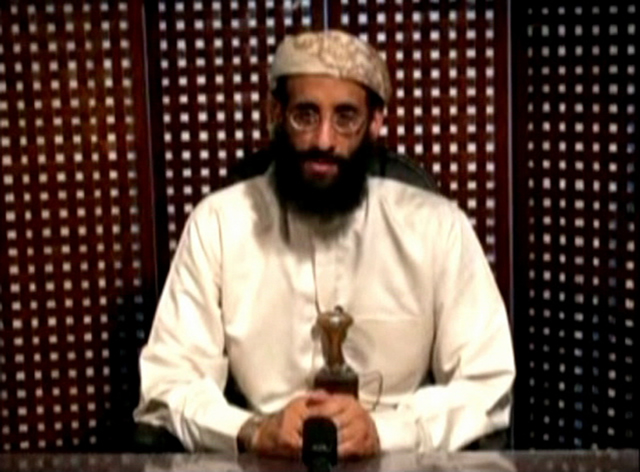A recent report from the RAND Corporation on al-Qaeda’s future says that the terrorist organization remains extremely dangerous and will demand America’s continued attention for years to come, echoing points Heritage has been making for some time now.
The report, “Al Qaeda in Its Third Decade,” by Brian Michael Jenkins, takes a step back from the political rhetoric surrounding ongoing U.S. counterterrorism efforts at home and abroad to critically assess al-Qaeda’s current status and future prospects. RAND’s report comes at a critical time, as last week saw the 45th attempted terrorist plot on U.S. soil since 9/11.
In a blunt assessment, the report declares that “claims of [Al-Qaeda’s] imminent defeat are hyberbole,” noting that the organization is “in decline, although not finished,” remaining “resilient and opportunistic.” Jenkins goes on to highlight that al-Qaeda’s operations are largely being carried out by various regional affiliates and partners rather than by the core organization itself, due in part to U.S. counterterrorism efforts worldwide. Al-Qaeda’s threat has been diffused across a broader spectrum, leading to a higher probability of less-destructive—and harder to detect—“do-it-yourself” terrorist attacks.
Regarding the war in Afghanistan, Jenkins notes the symbolic, as well as strategic, significance to al-Qaeda of the Taliban regaining influence there. Jenkins sees a premature U.S. withdrawal as jeopardizing hard-fought gains against the Taliban and notes that al-Qaeda would surely benefit from a Taliban victory. He casts doubt upon the viability of nascent U.S.–Taliban peace talks, noting that it is unlikely that the Taliban would abandon al-Qaeda for political concessions. Instead, following a U.S. drawdown, a resurgent Taliban would control large portions of Afghanistan and become a “more congenial host” to al-Qaeda, providing the terrorist organization with political support.
Indeed, Heritage’s Lisa Curtis has voiced the same concerns, warning that a precipitous withdrawal would “provide the conditions for al-Qaeda to revive in the region.” Jenkins also echoes Curtis’s warning that a hasty drawdown would jeopardize the U.S. drone campaign, as successful strikes rely on sound intelligence and logistical support provided by a strong U.S. presence.
Moving away from Afghanistan, Jenkins raises an important point in highlighting that subscribers to al-Qaeda’s ideology believe they are fighting a centuries-old war that will continue well beyond their own lives. This is fundamentally different from the perspective of Americans, who view war as having finite times, methods, and locales.
This raises a larger question: How long will the fight against al-Qaeda continue? In the current political climate, many in the U.S. point to Osama bin Laden’s death and the absence of an attack on U.S. soil—the Fort Hood shooting notwithstanding—as reasons for scaling back counterterrorism commitment, especially overseas. It’s been 10 years since 9/11, and already complacency could become our own worst enemy, a point on which Heritage and Jenkins agree.
The RAND report addresses this in warning against retreating to a pre-9/11 style of defensive isolationism. Such a strategy, Jenkins argues, “could increase the risk of a terrorist attack.” Moreover, he advises against formally declaring the war on terrorism over because such a declaration would alter the legal framework for intelligence activities, including targeted strikes against al-Qaeda leaders.
Finally, Jenkins credits intelligence sharing and cooperation, both domestically and abroad, as the fundamental reason behind the prevention of further attacks on U.S. soil. He attributes the breaking down of institutional barriers that have led to increased sharing and dissemination of intelligence among federal, state, and local authorities as a key factor for progress in the struggle against terrorism at home, whether homegrown or not.
The Heritage Foundation’s Counterterrorism Task Force Report recommends improving interagency cooperation, maintaining essential tools such as the PATRIOT Act, and expanding efforts to coordinate with local communities in countering violent extremism. America cannot simply rely on drone strikes to keep us safe. As Jenkins suggests, contrary to what the Obama Administration may think, drone strikes are a tool, not a strategy in itself.
The report ends on a somber note: The fight against al-Qaeda could continue, in one form or another, for decades. Americans will have to live with the threat of terrorism for the foreseeable future, their subjective security constantly under fire from those determined to harm us.
Living in such times, according to Jenkins, requires “perpetual vigilance without succumbing to imagined fears.” Bin Laden is dead, al-Qaeda is wounded, but the threat remains as real as ever. For our part, American citizens must resist complacency and urge Washington to pursue the initiatives necessary to combat al-Qaeda’s influence at home and abroad.































